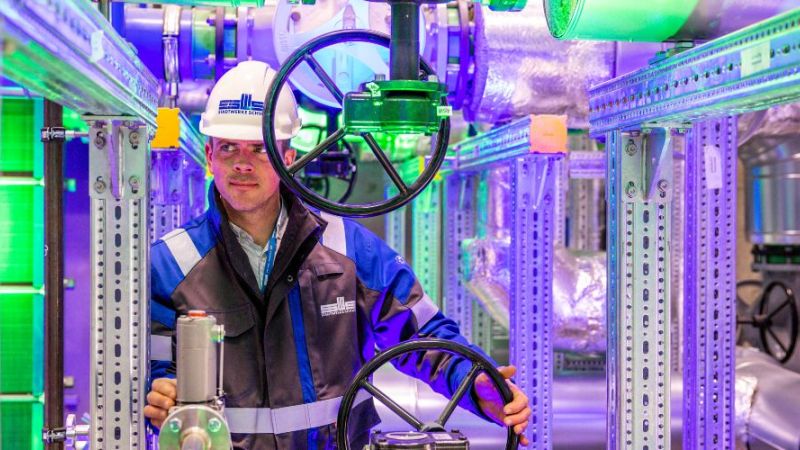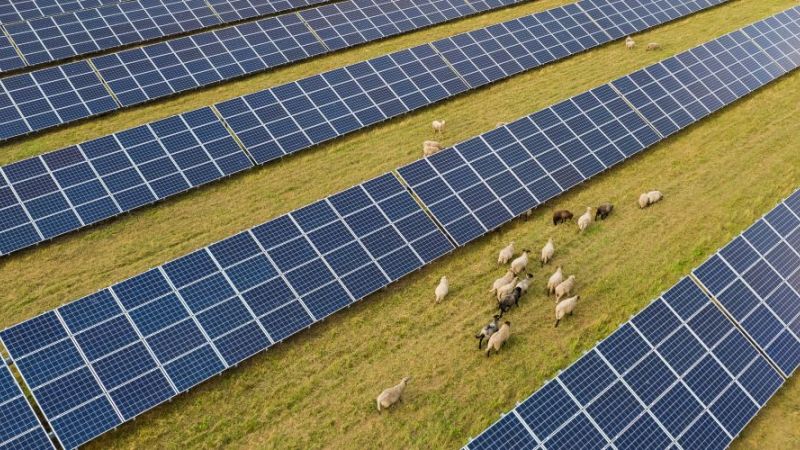Production of hydrogen and derivatives: fuel cells, reconversion to electricity
Great need for research in production of hydrogen
Various production processes are to be further developed and established for the production of green hydrogen. These include electrolysers with different technologies as well as promising alternatives, for example electricity-based, solar, biological or biochemical or thermal processes.
Eligible research content in production of hydrogen and its derivatives
Innovative approaches from the development and qualification of materials, components and systems through to the pilot operation of systems for the production of hydrogen and its derivatives in various areas of application are being funded. Peripheral units for the coupling of systems, such as fittings, safety devices, compressors and gas treatment plants are also being considered. At the same time, the preparation of the scaling of systems as well as methods for automation and series production are supported.
Modelling work supports the qualification of more suitable materials, for example to replace critical raw materials such as platinum or iridium, or environmentally harmful substances such as PFAS. At the same time, the new materials should be durable and efficient.
Intelligent, digital solutions can monitor and optimise the operational management of systems as part of a larger energy system. Economic efficiency, flexibility, safety and reliability are decisive factors for the success of the technologies and their successful transfer into practice.
Environmental compatibility and sustainability are emphasised in all technologies: Innovative processes can improve the ecological balance and contribute to resource-efficient recycling, techno-economic analyses show correlations and systematically compare technologies.
The aims of development are low maintenance and a long service life for the systems. Concepts for integrating systems that utilise waste heat or the resulting reaction gases have advantages. As the international importance of hydrogen technologies increases and the market grows, the technologies and systems must be adapted to different climatic conditions and operating environments, high cost pressure and environmental concerns appropriate to the location of use.
The development of hydrogen technologies is also supported in an international context by the standardisation of components, procedures, processes, safety concepts and products.
Green hydrogen can be used to produce chemical base materials and fuels such as methane, methanol and ammonia. The demand for such climate-neutral derivatives will increase considerably in the future. The BMWK is promoting processes that further develop the production of derivatives from hydrogen. As hydrogen can be imported via derivatives, the recovery of pure hydrogen is also a research topic.
In the case of electricity-based processes, the systems must demonstrate grid-friendly behaviour due to their cumulatively high electrical output. Grid-compatible behaviour is understood to mean the behaviour of the systems in response to control signals from the grid operators, but in particular also their characteristics in the area of system stability.
Other relevant research topics on fuel cells and efficient hydrogen reconversion
The chemical energy of hydrogen is converted highly efficiently and flexibly into electricity and heat in fuel cells. Fuel cells are therefore an important technology for a climate-neutral energy system. Funding is provided for the further development of all types of fuel cells and systems.
The BMWK promotes the development and optimisation as well as the production and industrialisation of fuel cell systems and their peripherals, including tanks, across a wide range of applications. Fuel cells are also to be further developed for power plants in the megawatt class. Environmental compatibility and sustainability measures are emphasised for all technologies, including recycling and the circular economy.
Hydrogen-fuelled power plants based on gas turbines or coupled processes with gas and steam turbines can enable an efficient, stable and needs-based supply of electrical energy in conjunction with renewables. With their flexible operating mode, such hydrogen-capable gas-fired power plants compensate for surplus demand and bridge phases without feed-in from renewables as a security-relevant back-up for the energy system.
Research topics include the technical upgrading of gas turbines and gas engines where there is a particular need for development in connection with the use of hydrogen or synthetic fuels, for example with regard to making their operation more flexible, increasing their efficiency and extending their service life.






